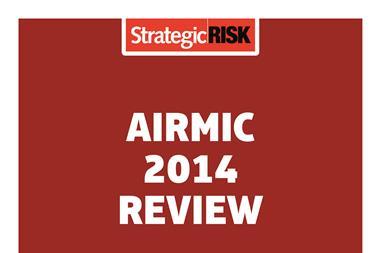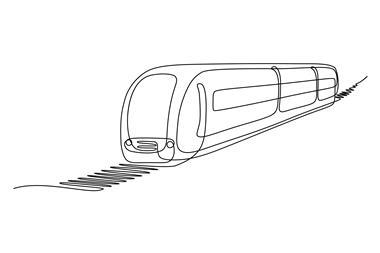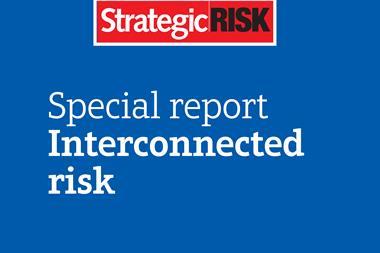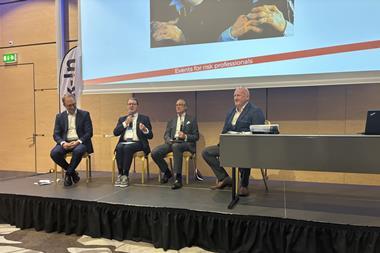Majority of UK boards are not following guidance with regard to ERM programmes and insurance buyers remain loyal to captives despite softer market − Airmic

More than half of UK boards do not sign off their company’s risk management programmes despite guidance from the Financial Reporting Council (FRC) that boards should take responsibility for risk management, according to Airmic.
Despite senior executives now being required to take a more proactive role in their company’s risk management, Airmic’s biennial Salary and Status survey of members has revealed that only 44% of boards authorise their enterprise risk management programmes. A significant number still rely on audit committees or do not get sign off at all.
Airmic’s survey provides a snapshot of insurance buying trends; a profile of today’s risk professionals and a gauge of the shifting status of risk management within the corporate structure. This year’s survey also suggests insurance buyers are buying less despite a reduction in prices.
Although less than half of UK boards take responsibility for risk management, the percentage of boards that authorise their company’s spend on insurance premiums is higher, at 55%. However, 12% of companies reported that they do not obtain a formal sign-off of their insurance programme at all.
Airmic technical director Paul Hopkin (pictured) said: “Recent guidance from the FRC makes clear that boards must have ultimate responsibility for risk management.”
In particular, the guidance says boards must be responsible for ‘ensuring the design and implementation of appropriate risk management and internal control systems’.
Hopkin added: “The FRC has avoided being too prescriptive in its guidance, but our survey suggests that more boards will need to authorise their risk management programmes in the future.”
This year’s survey also highlighted that insurance buyers do not appear to be buying more insurance despite lower prices. Airmic members spend an estimated £5bn in insurance premiums, with another £2bn going into captives and a further £2bn in uninsured, self-insured or retained losses.
“These figures are about the same as the last time we gathered this data five years ago, showing that our members still maintain their commitment to their captives despite a softer market,” Hopkin said.
The survey also revealed a significant increase in the use of external consultants. A rise in the number of risk functions relying on IT consultants was particularly notable, up from 29% in 2012 to 57% in 2014. There was also increased use of lawyers, loss adjusters, engineers and claims handling experts.
“This may reflect the growing complexity of risks companies face,” Hopkin said. “For example, the need for IT specialists is most likely in response to heightened concern about cyber risk, which is an extremely tough challenge for risk managers and companies more generally.”
There has been a steady move upward in the average salary awarded to risk and insurance managers. Only 32% of Airmic members earn less than £70,000 – down from 48% in 2012 and 54% in 2008. Meanwhile, the percentage of Airmic members earning more than £100,000 has risen slightly from 24% in 2012, to 28% this year.
However, although basic salaries have increased between 2012 and 2014, bonuses are less lucrative and, as a result, the overall remuneration package for risk managers has reduced in several sectors, notably the mining sector, which has been overtaken by the leisure, hotel & travel industry as the most lucrative sector for risk managers.
Interestingly, there appears to be a downward trend in the percentage of risk professionals with risk or insurance qualifications. The percentage of members with a Chartered Insurance Institute qualification has fallen from 45% in 2008 to 39% this year. Similarly, 22% of respondents had an Institute of Risk Management qualification, down from 27% in 2008. However, broader business qualifications such as the MBA have increased in popularity.
Other key findings of the survey include:
· salaries for risk managers have stabilised since 2012. Professionals in their 40s with more than 10 years’ experience in insurance and/or risk management have the peak earning capability;
· there is a clear relationship between job title and remuneration: chief risk officers earn on average £140,000; a director of risk management earns about £123,000; and the average salary for a head of risk management is about £104,000;
· the role and responsibilities of Airmic members are changing. In particular, it appears that the role of members is expanding into broader risk management issues, including enterprise risk management;
· the average size of risk management departments is no longer increasing, despite the fact that the range of responsibilities for risk managers is increasing; and
· more than 50% of Airmic members have control of a premium spend in excess of £10m pa.




















No comments yet